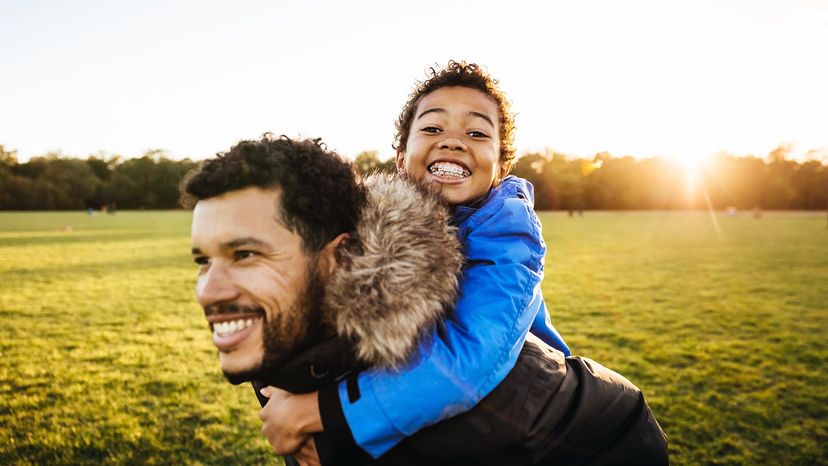
Love, as the song says, is a many splendored thing. So, when we find it, we're keen to enjoy the spoils. But what is it about humans that makes us long for love in the first place? It turns out the most inherent reason is also probably the least romantic.
"Generally speaking, human 'pair bonding' is a drive to keep the species in existence," Dr. Nicki Nance, licensed psychotherapist and professor at Beacon College in Leesburg, Florida, said in an email interview when we originally spoke to her in 2018. Over time, the tendency to find a love connection evolved from relationships built on need to those of enjoyment.
Advertisement
"Today, falling in love is socially defined. If we didn't have love stories to establish the expectation of falling in love, we might not do it. We would still bond, though," she said, noting that contemporary love is more successful when key components like passion, companionship and commitment are present.
How We Develop Love
The beginning stages of love, as well as how we pursue and give it throughout our lives, depends a lot on our parents. That's according to psychologist Dr. Beverly Palmer, author of "Love Demystified: Strategies for a Successful Love Life." "We are born as helpless infants, dependent on our parent to fulfill our needs. Love, then, becomes need fulfillment and we seek this same love out as adults," she said in a 2018 email interview.
Palmer explained that attachment theory plays a big part in the development of love for our parents, because when children are protected and nurtured by available, responsive parents, they have their need for emotional nurturing satisfied. Therefore, they learn to love the parents in return.
What children learn about love from their parents determines how they will love others as adults, she said. "If your parents fulfilled your need to be emotionally nurtured by giving you love, you then developed into an adult who has love to give. But if your emotional needs were not nurtured, you did not fully develop and instead became a demanding and anxious adult still seeking the love you missed as a child."
That's not to say that people from neglectful or non-loving homes aren't capable of love themselves, but they might need to do some extra work to resolve their issues and get there.

The Brain and Body on Love
Remember the pair bonding Nance mentioned? Well, it happens for a reason. "Our brain is set up to support pair bonding. When people fall in love, they go into a state of limerence," she said, which is a fancy way of saying infatuation or obsession. This happens because our brains and hormones go wild when faced with a sincere love interest.
"When we are in the company of the loved one the brain produces more serotonin, which gives a sense of well-being, more endorphins, which are natural pain killers, and more dopamine, which increases pleasure. The good feeling is a reward that makes us want more," Nance explained.
Although serotonin levels vary per person, they can also go down during the head-over-heels process. As a result, decreased serotonin may produce OCD-like symptoms that cause some people to think of the person they are in love with constantly, said Dr. Joe Bates, psychiatrist and author of "Making Your Brain Hum: 112 Weeks to a Smarter You" in 2018. The hormonal reactions aren't limited to romantic love, however. "Viewing pictures of beauty, nature, a loved one, [or even] your beloved pet, can cause us to feel relaxed or produce loving emotions, releasing oxytocin in the bloodstream," he explained, noting that oxytocin is regarded as the "love hormone."
Why Some People Find Love More Easily
Occasionally, eyes meet across the room and the rest is history. For most of us, however, falling in love is more complicated. Sometimes, the person who wants to be loved is unconsciously getting in their own way.
"In order to find love, we must first be able to give love, and we must have this love to give within ourselves. When you feel lovable you project that out and other people notice," Palmer said. "In searching for a lover, the person who doesn't feel worthy of love can't present themselves as lovable." This lack of confidence translates into neediness, which repels potential love-interests like bug spray. "The more the lonely person seeks love, the more it eludes them. The needier they appear, the less chance there is for someone to enter their life to fulfill those needs," she added, noting that it's critical to "love yourself without being dependent on other people's opinions."
Once you're ready to love yourself and are open to outside love, the rest is timing, chemistry and common ground. Although the old saying "opposites attract" remains prevalent, it's actually false in most cases. "The goal is to find someone who shares your same values, wants the same things for the relationship that you do, naturally agrees with you on how to obtain those things, and last but not least, has a mutual depth of love and desire for one another," relationship expert Kevin Darné said via email in 2018.
At the end of the day, love is relative, so don't expect your relationship to look, feel or act the same as past experiences or like those of your friends. "Ultimately, we're looking for someone to love us the way we want to be loved," Darné said. "If we don't feel loved, it doesn't matter what is in our mate's heart."
Advertisement